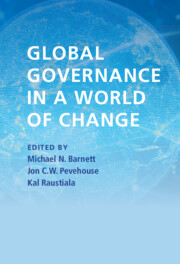Global Governance in a World of Change
Global governance has come under increasing pressure since the end of the Cold War. In some issue areas, these pressures have led to significant changes in the architecture of governance institutions. In others, institutions have resisted pressures for change. This volume explores what accounts for this divergence in architecture by identifying three modes of governance: hierarchies, networks, and markets. The authors apply these ideal types to different issue areas in order to assess how global governance has changed and why. In most issue areas, hierarchical modes of governance, established after the Second World War, have given way to alternative forms of organization focused on market or network-based architectures. Each chapter explores whether these changes are likely to lead to more or less effective global governance across a wide range of issue areas. This provides a novel and coherent theoretical framework for analyzing change in global governance.
Michael N. Barnett is University Professor of International Affairs and Political Science at the George Washington University. His previous books include Rules for the World: International Organizations in World Politics (co-authored with Martha Finnemore, 2004) which won several prizes, and Power in Global Governance (co-edited with Raymond Duvall, 2004).
Jon C.W. Pevehouse is the Vilas Distinguished Achievement Professor in Political Science and Public Policy. His research interests are in the field of international relations and political methodology. He is the recipient of the Karl Deutsch Award and multiple teaching awards. He served as the editor of International Organization.
Kal Raustiala is the Promise Institute Professor of Comparative and International Law at the UCLA School of Law and Director of the UCLA Burkle Center for International Relations. His previous books include Does the Constitution Follow the Flag? (2009) and The Implementation and Effectiveness of International Environmental Commitments (co-edited with David G. Victor and Eugene B. Skolnikoff, 1998).

